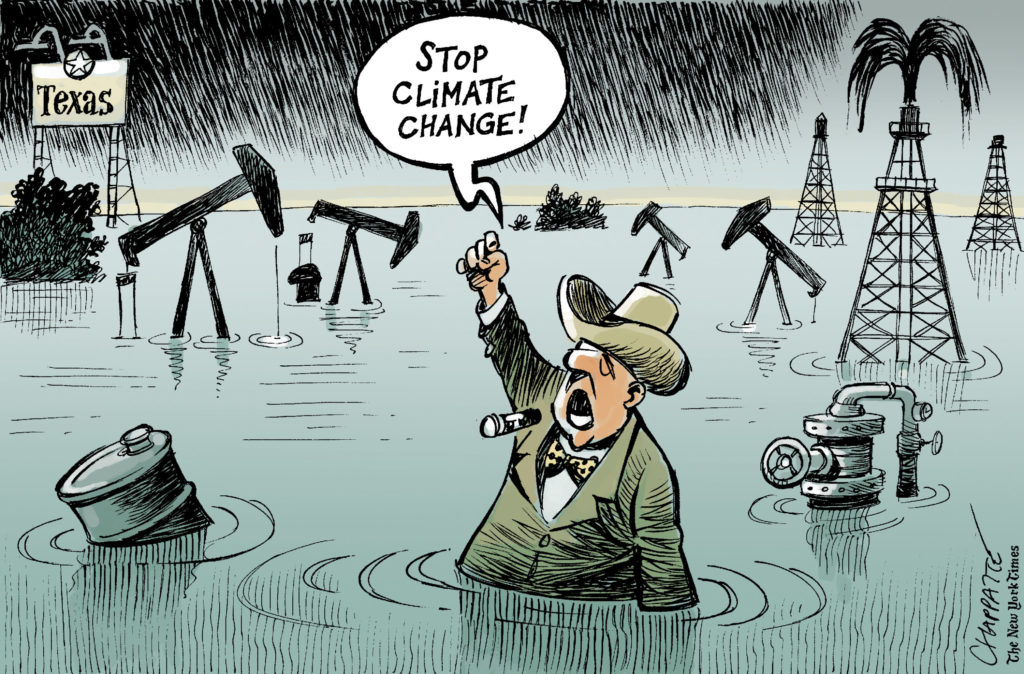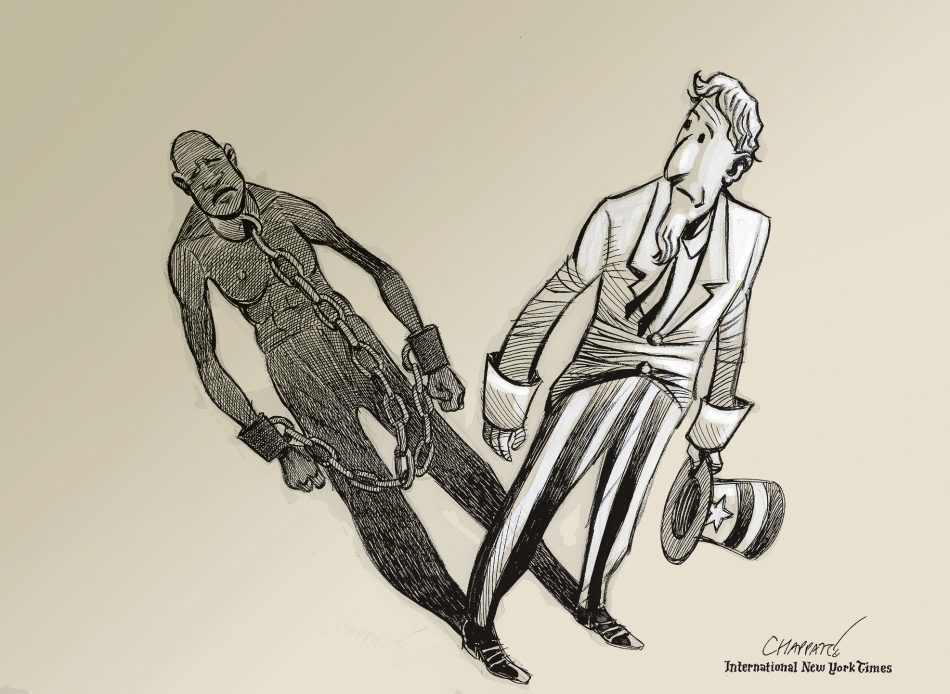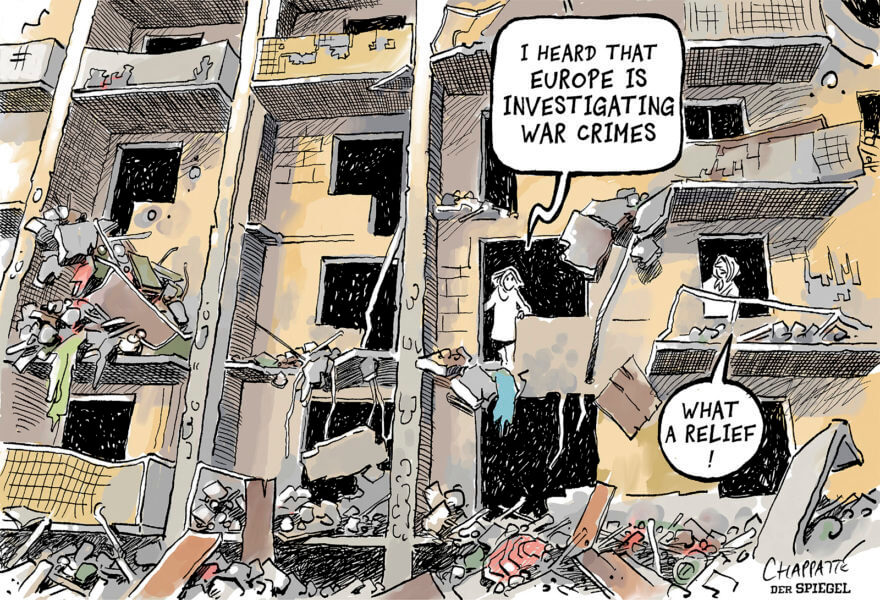After the outbreak of COVID-19 – a virus constituting a genuinely worldwide risk – fear internationalised in just a few weeks. As the COVID crisis has profoundly shaken societies on a global scale it has contributed to a reconfiguration – perhaps a multiplication – of risks and their perceptions. While foremost constituting a biological hazard, the pandemic has large repercussions on other types of risks, ranging from long-term economic and digital disruption to psychological distress and political confrontation. The nature and frontiers of risks are thus moving as the multilateral system, the most adequate framework to deal with global risks, is ailing and current risk mitigation strategies are increasingly put to question. The six articles of the present Dossier explore these changing hierarchies of risk and the underpinning structural issues that endanger our existence.
© Chappatte, The International New York Times, 20 mai 2015
While the global balance of power, under the impetus of the steady rise of China, is shifting towards the Asia-Pacific, and because the future of US policy is uncertain after the election of Donald Trump, tensions in the South China Sea have once again become a major strategic concern. The South China Sea is witnessing a series of sovereignty disputes between littoral states defending rivalling claims to maritime rights and boundaries. Adding weight and urgency to the disputes are the significant natural resources found in the coveted archipelagos and sea beds as well as the rising national sentiments in many of the claimant states. The geostrategic dimension of these quarrels is largely transcending the region and the involvement of external powers such as the United States further complicates the equation. The recent legal victory of the Philippines over China can be seen as a supplementary cause for anxiety in a latent conflict that may at any time escalate into a regional or global confrontation. Henceforth the search for a negotiated solution becomes crucial as military budgets continue to soar in the region.
War on the Horizon?
-
I

Multiplying Hotbeds of Tension
-
1

Antagonisms in the South China Sea: The Regional Perspective
Reading time: 5 min -
2

A Sea at the Heart of Chinese National Interest
Reading time: 5 min -
3

The US Pivot Strategy: A Change of Paradigm in the South China Sea?
Reading time: 3 min -
4

China and the United States: The Evolution of a Relationship
Reading time: 6 min -
5
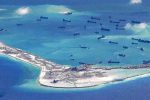
Legal Victory for the Philippines against China: A Case Study
Reading time: 5 min -
6
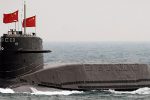
Arms Race in the South China Sea: What Threshold?
Reading time: 5 min -
O

Uncertainty in the South China Sea in the Wake of Trump’s Inauguration: The Risk of Escalating Rhetoric
Editors’ note:
This research dossier was written until January 2017 and therefore does not take into account recent developments regarding the South China Sea.








